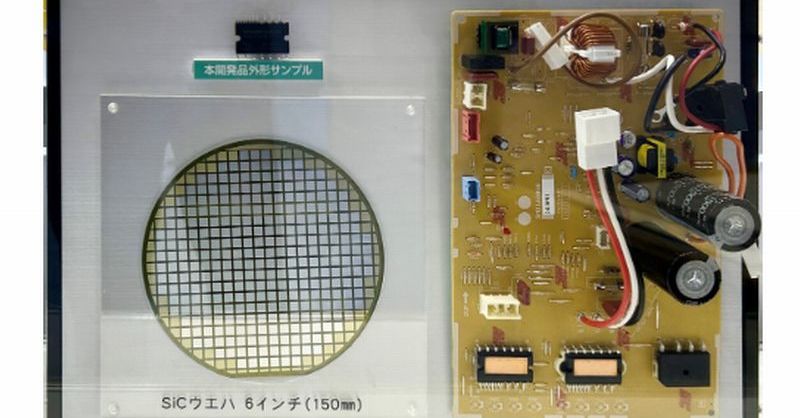Innovative SiC IPM: Cutting AC Energy Costs
Revolutionizing Energy Efficiency with Silicon Carbide Intelligent Power Modules
The global push for sustainable energy solutions is driving innovation across various sectors. One area seeing significant advancements is power electronics, with Silicon Carbide (SiC) Intelligent Power Modules (IPMs) emerging as a game-changer for reducing energy consumption, particularly in air conditioning systems. This technology promises to slash AC energy costs significantly, offering both environmental and economic benefits.
What are SiC IPMs?
SiC IPMs represent a significant leap forward in power semiconductor technology. Unlike traditional IGBT (Insulated Gate Bipolar Transistor) based modules, SiC IPMs utilize silicon carbide as the core semiconductor material. This offers several key advantages:
- Higher Switching Frequencies: SiC allows for much faster switching speeds compared to IGBTs, leading to reduced switching losses and improved efficiency.
- Lower Power Losses: The inherent properties of SiC result in significantly lower conduction and switching losses, translating directly into energy savings.
- Smaller Size and Weight: SiC devices typically have a smaller footprint than their IGBT counterparts, allowing for more compact and lightweight designs in AC units.
- Improved Thermal Management: Reduced losses contribute to lower operating temperatures, simplifying thermal management and extending the lifespan of the system.
How SiC IPMs Reduce AC Energy Costs
The improved efficiency of SiC IPMs directly impacts energy consumption in air conditioning systems. By minimizing power losses, these modules enable AC units to operate with greater efficiency, requiring less energy to achieve the same cooling capacity. This translates to:
- Lower Electricity Bills: Consumers can expect to see a substantial reduction in their monthly electricity bills.
- Reduced Carbon Footprint: Lower energy consumption contributes to a smaller carbon footprint, aligning with global sustainability goals.
- Extended Equipment Lifespan: Lower operating temperatures and reduced stress on components contribute to a longer lifespan for the AC unit.
The Future of Energy-Efficient Cooling
The adoption of SiC IPMs is not limited to residential AC units. This technology is poised to revolutionize energy efficiency across a broader spectrum of applications, including:
- Commercial HVAC Systems: Large-scale air conditioning systems in commercial buildings can benefit significantly from the energy savings offered by SiC IPMs.
- Data Centers: The cooling demands of data centers are immense. SiC IPMs offer a pathway to significantly reduce energy consumption in these facilities.
- Electric Vehicles: The power electronics in electric vehicles also stand to benefit greatly from the improved efficiency and performance of SiC IPMs.
Challenges and Opportunities
While the benefits of SiC IPMs are undeniable, some challenges remain:
- Higher Initial Cost: Currently, SiC IPMs are more expensive than traditional IGBT modules. However, the long-term energy savings often outweigh the higher initial investment.
- Supply Chain Constraints: The manufacturing capacity for SiC devices is still developing, which may lead to supply chain challenges in the short term.
Despite these challenges, the long-term potential of SiC IPMs is vast. Ongoing research and development efforts are focused on reducing costs and improving manufacturing processes to accelerate the widespread adoption of this transformative technology.
Conclusion: A Cool Solution for a Hot Problem
SiC IPM technology offers a compelling solution to the ever-growing demand for energy-efficient cooling. By significantly reducing energy consumption and operational costs, SiC IPMs are poised to play a crucial role in shaping a more sustainable future. The ongoing advancements in this field promise even greater efficiency and cost reductions in the years to come, making it a technology to watch closely. Learn more about sustainable energy solutions by exploring [link to a relevant resource - e.g., a government energy efficiency website].
